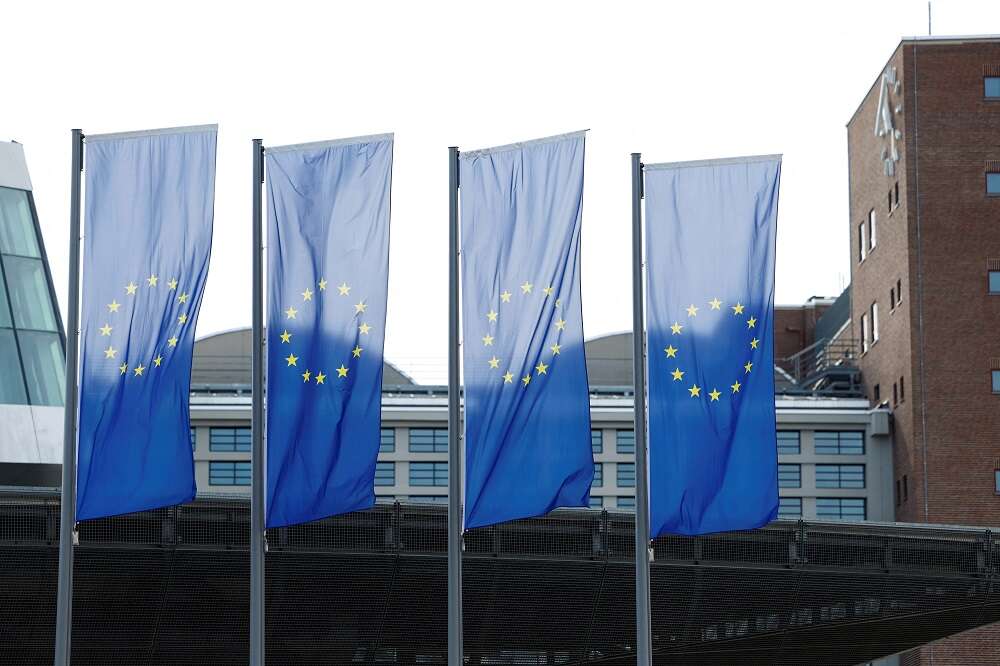
(Reuters) – The European Central Bank pushed through another big increase in interest rates on Thursday, sticking with its question to fight inflation despite turmoil in financial markets that has raised fears about a global banking crisis.
The ECB raised its three policy rates by 50 basis points in its sixth consecutive rate hike and said future moves will depend on incoming data.
“The Governing Council is monitoring current market tensions closely and stands ready to respond as necessary to preserve price stability and financial stability,” the ECB said.
HIGHLIGHTS:
Thursday’s decision increases the rate the ECB pays on bank deposits, which is the benchmark for borrowing costs in the euro zone, to 3.0% from 2.5%.
MARKET REACTION:
STOCKS: European stocks seesawed in volatile trading and were last 0.2% higher on the day , having been flat just before the decision. Banking shares fell 0.1%.
BONDS: Germany’s 2-year bond yield, the most sensitive to interest-rate expectations, was last up 4 basis points on the day at 2.421% .
FOREX: The euro was flat at $1.0577, having fallen to a session low of $1.0552 from $1.0599 just before the ECB decision.
COMMENTS:
ERIK NELSON, MACRO STRATEGIST, WELLS FARGO, LONDON:
“The ECB’s 50-bp hike is a clear signal that it remains very focused on inflation, which was the first thing they mentioned in the top line of the statement.
The euro was initially sold on the back of the 50-bp hike, presumably around fears of systemic risk and/or weaker economic growth in the euro zone. But the ECB also pledged to provide liquidity support as needed, likely limiting downside in European rates and the euro. European yield curves should continue to flatten after this decision.”
DANIELE ANTONUCCI, CHIEF ECONOMIST & MACRO STRATEGIST, QUINTET PRIVATE BANK, LONDON:
“Given financial instability risks, there’s growing uncertainty on future ECB actions beyond this pre-signalled rate hike.
Our base case, currently, is that instability doesn’t derail the rate path too much. This means that because core inflation hasn’t even peaked, extra rate rises will follow.
The magnitude of these possible rate increases, however, remains to be seen and, we suspect, the central bank may struggle to deliver in a scenario of high market volatility.”
JUSTIN ONUEKWUSI, HEAD OF EMEA RETAIL INVESTMENTS, LEGAL & GENERAL INVESTMENT MANAGEMENT, LONDON:
“Central banks have a real dilemma that they have a core mandate, which is inflation. But there’s also a challenge now post-SVB and given banking volatility.
“We have learned from 2008 that central banks do have the tools that can help contain contagion.
“The ECB did say it was data-dependent.
“So, we have seen volatility and likely to see greater volatility. But central banks have a clear mandate to manage inflation and they have to do that.”
ULRIKE KASTENS, ECONOMIST EUROPE, DWS, COLOGNE:
“The European Central Bank delivers on its promises and raised key interest rates by another 50 basis points, despite tension on the financial markets. This is good news against the background of persistently high inflation rates.
“At the same time, it reaffirms its intention to intervene with liquidity measures if financial market stability is threatened. But there is no pre-commitment of the further interest rate path, which is understandable in view of the current situation.
“Nevertheless, the ECB’s mandate is price stability. This is not the case either at present or on the basis of the projections for the next few years. Therefore, the ECB´s work isn´t done, yet. Further interest rate hikes have to follow.”
JUSSI HILJANEN, CHIEF EUROPE AND US RATES STRATEGIST, SEB, SWEDEN:
“Looking at the wording of the press release, it’s pretty much as expected. They avoid giving any explicit guidance except saying that they’re going to be data-dependent.”
“I think if anything they seemed to be even a bit more relaxed in their tone on the risks of the banking crisis. They are really calm in the press release on that front.”
“Obviously the future policy path will depend crucially on what happens in the banking system, if the turbulence can be contained or if it gets worse again.”
CARSTEN BRZESKI, GLOBAL HEAD OF MACRO, ING, FRANKFURT:
“We expect the ECB to turn more dovish today and in the coming weeks, probably hinting at a slowdown in the pace and size of any further rate hikes.”
RICHARD CARTER, HEAD OF FIXED INTEREST RESEARCH, QUILTER CHEVIOT, LONDON:
“The European Central Bank has taken a look at what is going on in the banking sector right now and has effectively said they are comfortable with what is happening by raising rates by half a percentage point.
“Credit Suisse appears to be teetering on the edge, and the ramifications its collapse could have on the European banking sector are profound. But the ECB continues to see inflation as the bigger risk to tackle. And this could perhaps be a good sign, as it is hoped that the likes of Credit Suisse and Silicon Valley Bank are isolated incidents, with their own set of circumstances.
DARIO PERKINS, MANAGING DIRECTOR GLOBAL MACRO, TS LOMBARD, LONDON:
“They raised rates because they had already said they would. But the complete lack of forward guidance suggests they don’t know what happens next.”
ANTOINE BOUVET, SENIOR RATES STRATEGIST, ING, LONDON:
“50 bps as promised. This sends a strong message on inflation but the statement is peppered with reference to market tensions.”
“This means the ECB will be data dependent. It also stands ready to provide liquidity. Overall, this is in line with expectations.”
STUART COLE, HEAD MACRO ECONOMIST, EQUITI CAPITAL, LONDON:
“The ECB was basically caught between a rock and a hard place. It had already signalled to the market at its last meeting that a 50-bp hike could be expected, so to back-track now probably risked sending a message that worries over financial stability and contagion from the U.S. bank failures is seen as a serious enough concern that it is trumping the need to continue tightening policy as it battles inflation.”
“Sending such a message could have actually been negative for the euro-zone finance sector as it would simply have frayed market nerves further.”
“The fact that the ECB has reiterated that it remains ready to preserve both price stability and financial stability is, for me, an acknowledgement to the markets that it is aware of the current turmoil, and that it is prepared to take action if necessary.”
EREN OSMAN, MANAGING DIRECTOR, WEALTH MANAGEMENT, ARBUTHNOT LATHAM, LONDON:
“Whilst we had anticipated a 25 bps with hawkish guidance, the ECB’s decision to move rates higher by 50 bps demonstrates that getting inflation under control remains their primary focus.”
“The recent market concerns surrounding the U.S. regional banks and more recently Credit Suisse do not pose a systemic risk to the global banking sector and central bankers will continue with their rate hiking policy.”
(Reporting by the Markets Team, Compiled by Dhara Ranasinghe; editing by Yoruk Bahceli and Amanda Coopr)


